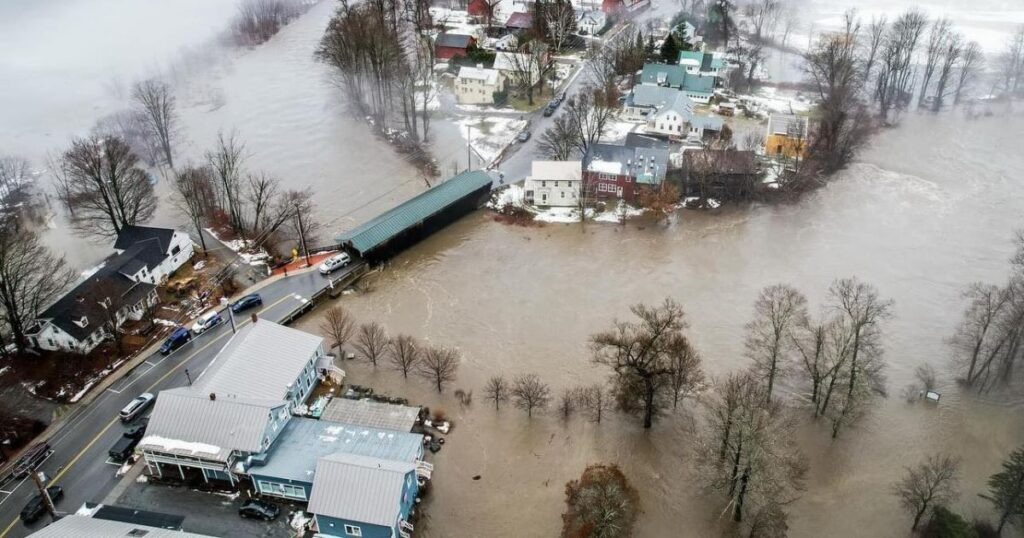This article is included in these additional categories:
In an unprecedented move, the Vermont legislature enacted S.259 (Act 122), the “Climate Superfund Act,” making it the first state to hold fossil fuel companies financially responsible for climate change-related damages. This legislation comes in response to severe weather events, including catastrophic flooding, that have heavily impacted the state.
Republican Governor Phil Scott allowed the bill to become law without his signature, citing concerns about the financial and legal challenges of confronting major fossil fuel companies alone, but acknowledged the necessity of addressing climate change’s increasing toll on Vermont.
“I understand the desire to seek funding to mitigate the effects of climate change that has hurt our state in so many ways,” Scott wrote to lawmakers. The moderate Republican, seeking reelection, has often clashed with the Democrat-controlled Legislature, which he has described as unbalanced. Environmental advocates expected a veto, but he allowed the bill’s enactment, reassured by the Agency of Natural Resources’ requirement to report on the law’s feasibility.
Climate Action Now
The law was prompted by last summer’s devastating floods, which inundated Vermont’s capital, Montpelier, and nearby Barre. The torrential rains caused extensive damage, washing away roads and homes, and leaving businesses and homeowners facing flood-damaged properties as winter approached.
Under the new legislation, the Vermont state treasurer, with the Agency of Natural Resources, must report by January 2026 on the costs of greenhouse gas emissions from 1995 to 2024. This assessment will include impacts on public health, natural resources, agriculture, economic development, and housing, using federal data to attribute emissions to specific fossil fuel companies.
The law employs a polluter-pays model, targeting companies involved in fossil fuel extraction or crude oil refining linked to over 1 billion metric tons of greenhouse gas emissions. Funds collected will be allocated to infrastructure improvements such as stormwater drainage systems, road and bridge upgrades, sewage treatment plant retrofitting, and energy-efficient building enhancements. This initiative is inspired by the federal Superfund program for pollution cleanup.
Comments From Stakeholders
Paul Burns, executive director of the Vermont Public Interest Research Group, praised the legislation: “For too long, giant fossil fuel companies have knowingly lit the match of climate disruption without being required to do a thing to put out the fire. Finally, maybe for the first time anywhere, Vermont is going to hold the companies most responsible for climate-driven floods, fires, and heat waves financially accountable for a fair share of the damages they’ve caused.”
The American Petroleum Institute, a leading oil and gas industry lobby group, voiced strong opposition, arguing that the legislation retroactively imposes costs on previously legal activities, violates equal protection and due process rights, and is preempted by federal law. “This punitive new fee represents yet another step in a coordinated campaign to undermine America’s energy advantage and the economic and national security benefits it provides,” spokesman Scott Lauermann stated.
Despite anticipating legal challenges, Vermont lawmakers remain resolute. State Representative Martin LaLonde, a Democrat and attorney, is confident in Vermont’s legal standing, noting that legislators collaborated with legal scholars in drafting the bill. “Most importantly, the stakes are too high – and the costs too steep for Vermonters – to release corporations that caused the mess from their obligation to help clean it up,” LaLonde emphasized.
Other states, including Maryland, Massachusetts, and New York, are considering similar measures, indicating a growing trend toward holding fossil fuel companies accountable for their role in climate change.
Original Story at www.environmentenergyleader.com
